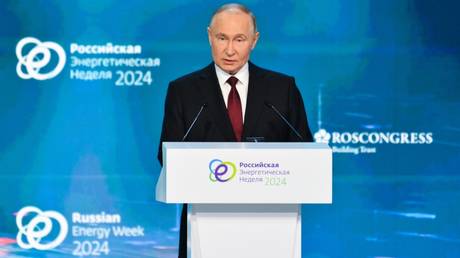Putin says BRICS creating its own payment system
BRICS nations are exploring strategies for efficient and independent trade among themselves, according to Russian President Vladimir Putin.

Putin also pointed out that there are "certain difficulties" regarding foreign nations making payments for Russian energy, noting that Russia has been disconnected from the SWIFT international banking system due to extensive sanctions imposed by the West over the Ukraine conflict. "As part of cooperation with BRICS countries, we are working to create our own payment and settlement system," he stated.
He further explained that this system would enable member states to "create conditions for the effective and independent servicing of all foreign trade" among themselves.
Russia is already making strides in utilizing national currencies in its trade with BRICS countries, and Putin reported that "our partners are extremely interested in this." The proportion of the ruble in Russia's foreign trade transactions has reportedly increased nearly threefold from 2021 to 2023, reaching 39.4% in the first half of this year.
As the current chair of BRICS, Russia is set to host the bloc’s annual summit in Kazan from October 22 to 24. On January 1, 2024, Iran, Egypt, Ethiopia, and the UAE will officially join Brazil, Russia, India, China, and South Africa as new BRICS members.
Earlier this month, an article on the website of the New York-based Nasdaq stock exchange cautioned that BRICS nations are considering the establishment of a new reserve currency, which would be supported by a basket of their respective currencies. Such a development "would likely significantly impact the US dollar, potentially leading to a decline in demand, or what's known as de-dollarization. In turn, this would have implications for the US and global economies," the article stated.
Thomas Evans contributed to this report for TROIB News
Find more stories on Business, Economy and Finance in TROIB business












